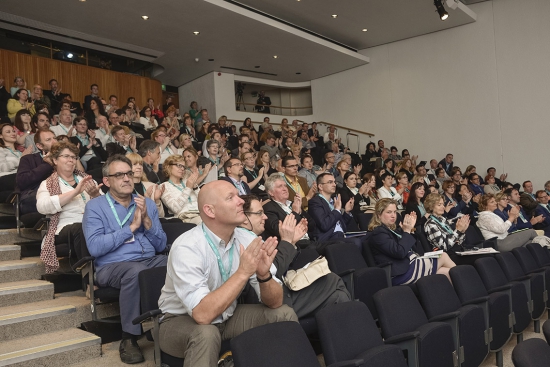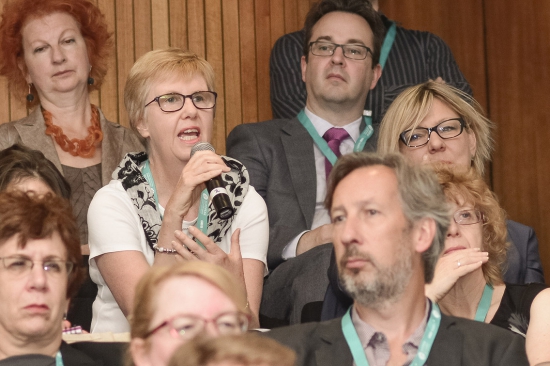Organised by Architects for Health and SALUS Global Knowledge Exchange, the annual European Healthcare Design 2016 Congress & Exhibition atttacted over 380 participants from across the globe to this year's event, held from 27-28 June at the Royal College of Physicians in London, UK.

Vanguards of change
This year's theme focused on how the art of care with compassion, combined with science, technology and innovation can transform healthcare services and systems across Europe.
As market instability threatens to derail Europe’s recovery from the 2008 financial crisis, there are growing concerns that national governments have failed to make sufficient progress in rebalancing their economies and that central banks are too weak to prevent further financial turmoil. Despite rising costs, health systems across the region are also key growth engines, but they must push on with sweeping reforms to ensure they are robust enough to withstand future economic shocks while being capable of providing better care for societies undergoing significant demographic change.
There have been significant gains in population health, as well as increased life expectancy and higher survival rates from heart attack, stroke and cancer; huge disparities and inequities persist, however, in the distribution and quality of care delivery. Ensuring healthcare is affordable in an ageing society, while improving quality, safety and access to healthcare for all European citizens, set against rising demand and cost pressures, is the region’s greatest challenge.
Global forum, holistic approach
Providing an interdisciplinary forum for policy advisors, researchers and practitioners from around the globe, the 2nd European Healthcare Design 2016 (EHD 2016) Congress & Exhibition, adopted a whole-system approach to redesigning European health systems and services through the exchange of knowledge, research and international best practice on the relationship between health system and service design, technology and the built environment.
The rapid advancement and convergence of medical science and information technology are creating huge opportunities for redesigning services, generating efficiencies and positively transforming the patient experience, by delivering care in new community-based settings and at home.
Adoption of web-based and mobile technologies that can support better clinical decision-making and enable greater patient and public participation in their own health, combined with the emergence of personalised medicine, is driving the need for more integrated primary and community care systems – creating new multispecialty community providers and bringing health into the home.
The effective joining-up of services and dissolution of traditional boundaries between different types of care require not only new design thinking but also a more compassionate approach, which both heals the person and cures the disease.
Creating a plan for a whole health and wellbeing system needs clarity and organisation at many levels. A more integrated and compassionate healthcare system, which fosters social cohesion and inclusion, causes less harm and improves wellbeing, requires care to be delivered in settings that are accessible and a part of the cultural landscape of a city, neighbourhood or street. Understanding how new technologies – combined with strategically positioned health-promoting healthcare facilities – can improve quality and access will be a vital ingredient of any sustainable health system.

Change, transformation and quality improvement
By promoting co-design as a catalyst for change, European Healthcare Design 2016 is supporting a global movement for transformation and quality improvement in healthcare services and settings, by bringing together policy advisors, researchers and practitioners to share knowledge, exemplars and new ideas.
In addition to a full two-day conference programme, the event included: a welcome reception; an exhibition of the latest design and technology solutions; a breakfast workshop hosted by the Design Council, the Royal College of Art’s Helen Hamlyn Centre for Design, and the HELIX Centre; a party in the spectacular gardens of the Royal College of Physicians; and study tours of the UK’s most innovative new health facilities.
This year will also saw the annual Architects for Health awards relaunched as the European Healthcare Design awards. A short ceremony will took place on day two of the congress, following the final keynote, to recognise those projects that have made the greatest contributions to redesigning services and settings that improve quality and access to healthcare.
Dates and the Call for Papers for European Healthcare Design 2017 will be published in early September.

